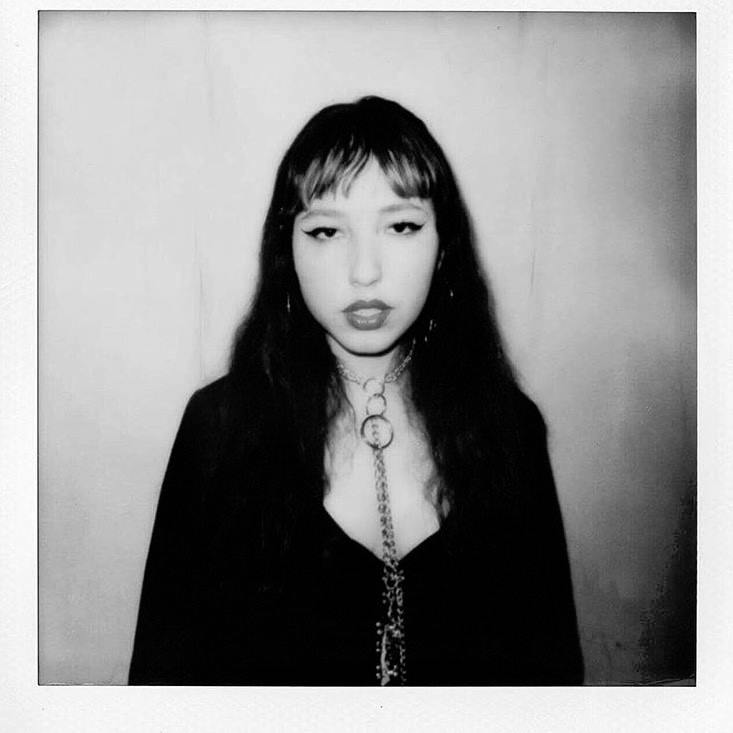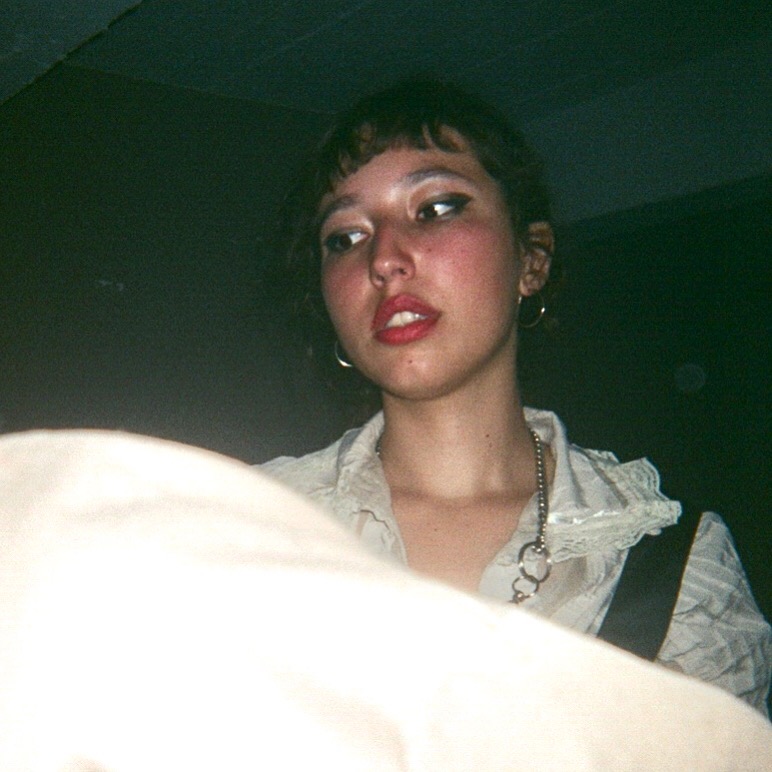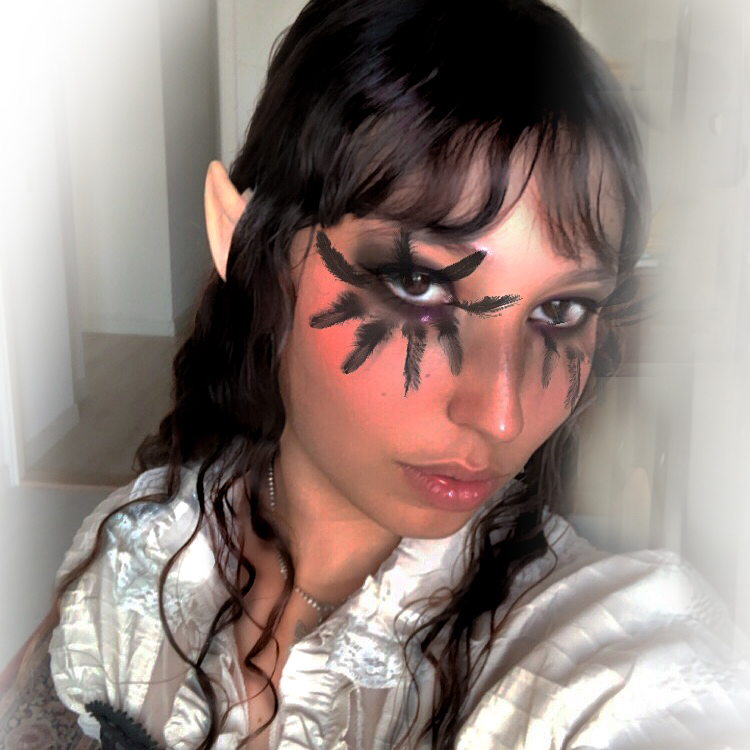“I think collectivism would solve a lot of bigger issues.”

An anchor within Amsterdam’s queer club scene, DJ Serene is the techno gal’ with an ever-important agenda for the underground community. In 2017, DJ Serene and her bestie, LYZZA, founded X3—Amsterdam’s first inclusive safe(r) space party—championing womxn and queer POC in the local nightlife scene that’s still majorly ruled by racism and misogyny. Ever since, DJ Serene has been someone, whose mission and music path we’ve followed with attention and love. To her, imagination is key, and hence both her being and sonic output always evade orthodox classification. Serene’s sets are rooted within electronic music but escalate far beyond that, bringing in newly created sounds and samples with which she curates a true collage-identity for herself. As we already mentioned, hers has been path that’s close to our minds and hearts, but once the idea for a celebration of our upcoming URGENT issue emerged, we knew that without DJ Serene, the evening wouldn’t be complete or make sense. In anticipation of her performance at “Elements of Urgency with Glamcult” next week, we sat down with the artist for a chat on her journey through music, the underground community, and the notion of urgency.

What creative journey brought you to your sound today?
Music has been an escape for me ever since I can remember. I started writing and singing songs when I was a kid and I never really stopped doing that. Being surrounded by so many talented and creative individuals, I can’t help but feel inspired and wanting to develop myself further. With DJing, I started off playing Soundcloud tracks from underground artists. Back then, I was definitely way more experimental and more focused on the listening process. Later, I found that I felt the most joy when making people dance. Also, seeing so many different artists doing their own thing (in their own authentic way) showed me I could experience freedom dancing to trance, punk, club, house, etc. I saw that the genre really doesn’t matter. Therefore, my goal is to kind of combine the things I’ve found and enjoyed, and merge them into one cohesive experience.
Your sets are eclectic yet rooted within electronic music, creating a collage identity within your sound. Is this how you would describe your music, and could you expand further on your identity as a musician?
You definitely found the right words to describe it! I’d never constrain myself to a certain genre. There’s beautiful music everywhere and the only thing that matters is if it makes you feel something. Growing up with a Muslim dad, we weren’t allowed to listen to Western-originating music; only music made with traditional instruments (drums, flutes, strings) during a wedding. But on the other hand, I had a super liberal mother that played Euro-Trance radio every morning to energise herself for the day. This [experience] probably influenced my take on music a lot. Not only that, it has of course also shaped me as a person; I’ve always questioned and explored my identity.
Your sets produce an evolution of energy, taking the listener on a journey, could you describe the intentions of this journey and why (if so) it is important to you?
When I started playing, I definitely always had a build up in mind, creating a kind of journey towards a climax. I still do this at specific events that are not club-related (maybe if I open a party) and in my mixes. These days, I’ve found my club sets to be rather continuous bursts of energy. If I start playing at 5 in the morning, I will give the people what they need and a slow build up is not a part of that if I have to be honest.
Are the spaces you play also of importance to your preparation and experience of a gig?
Definitely. I have noticed that at underground/queer parties, there is such an open-minded spirit dominating the space, it allows you to play your “wildest” tracks that you would maybe not play in front of another demographic. Maybe I should just always do that, but I adjust my sets a bit depending on where, for who and when I’m playing.
Your music is synonymous with DIY culture. Do you think you found your place within the underground community or rather it helped you evolve into finding your sound?
I would say most, if not all, of my favourite artists are part of this community, and this has impacted how I view music a lot. I believe that friends are the biggest source of inspiration and support. My life would look completely different without this community.
You, alongside LYZZA, are one of the founders of X3, why did you feel the initiative was needed in Amsterdam?
Amsterdam is definitely lacking queer underground parties. There are queer parties, where LGBTQ+/POC/Womxn are the focus point and there are underground parties, where underground musicians are being booked. But the two combined—and that outside of the familiar settings and male-dominated establishments—doesn’t really exist.
In your mission to create “safe(r) spaces” for minorities, what is your hope for the essence of the X3 community going forward?
[I hope] for X3 to be a space where every individual is aware of their surroundings and is willing to see everyone as a friend that they will help and guide when in need; for it to be one big queer family. Maybe that’s wishful thinking? But I want it to be a true community!
We’re releasing the URGENT issue this spring, and we’re so excited you’re playing at the celebration party. What does the word “urgency” bring to your mind?
Urgency to change the current system: politically, collectively and individually. The urgency to create community and a collective spirit. [Urgency to] fight Western individualism that has led to classism, exploitation and other horrors of contemporary capitalism. But also, things that you as an individual can do: be an ally, support black artists, vote, donate to your local charity, give love, etc.
Would you relate electronic music and its scene to the concept of urgency?
The electronic music scene is big, but not inclusive at all; this is something that should change. In that way, I would relate it to the concept of urgency. The urgency for an inclusive industry. I also think of electronic music as being a scene where these issues can be discussed and where ideas are formed. People go out to connect with each other and the music, and this can be more influential that people realise sometimes.
What is the most urgent cause on your agenda right now and what steps do you feel society needs to take to get there?
In this world, I could never pick one cause that I’d find the most important. I do really crave a less individualistic society. I think collectivism would solve a lot of bigger issues.
